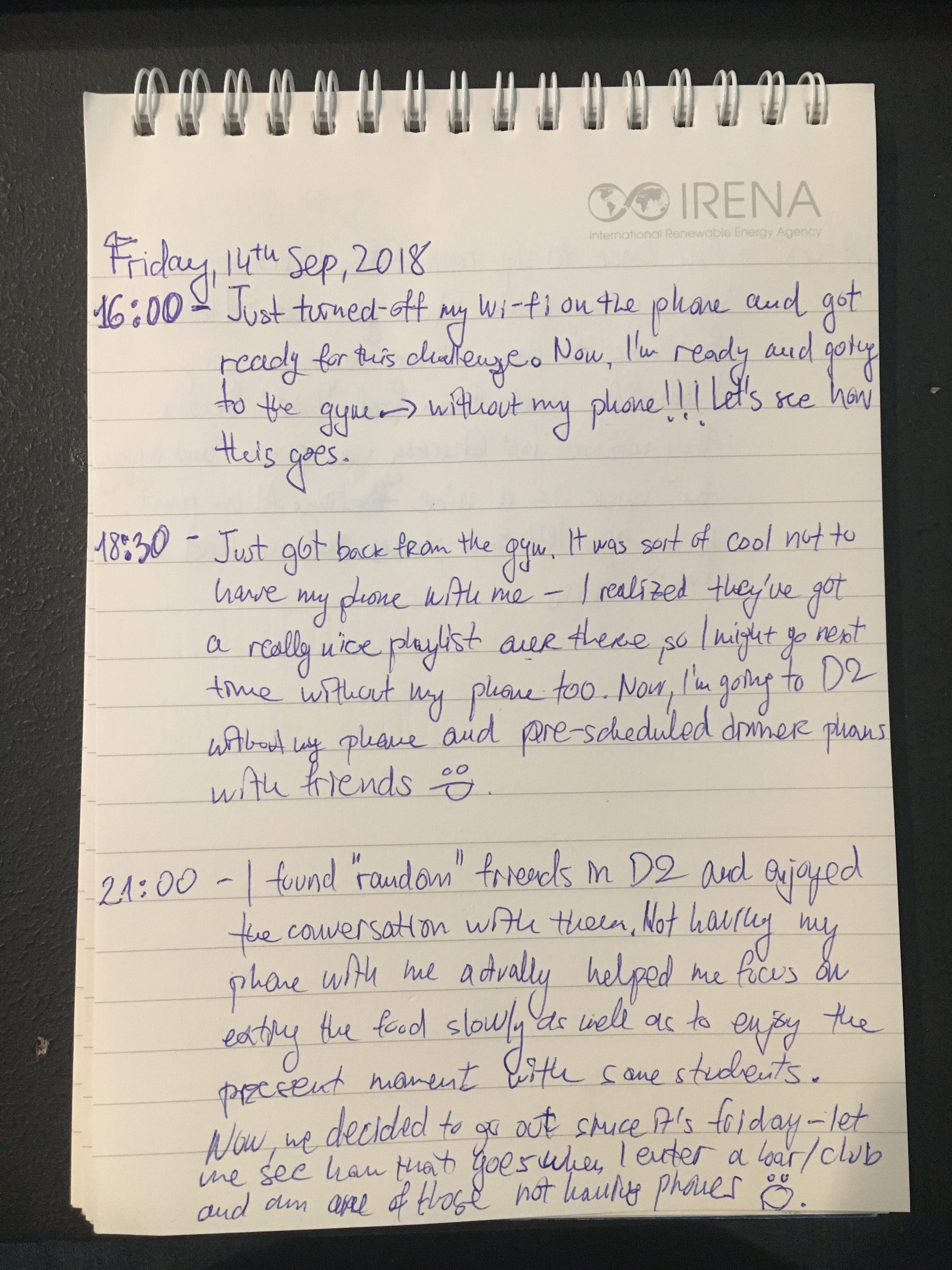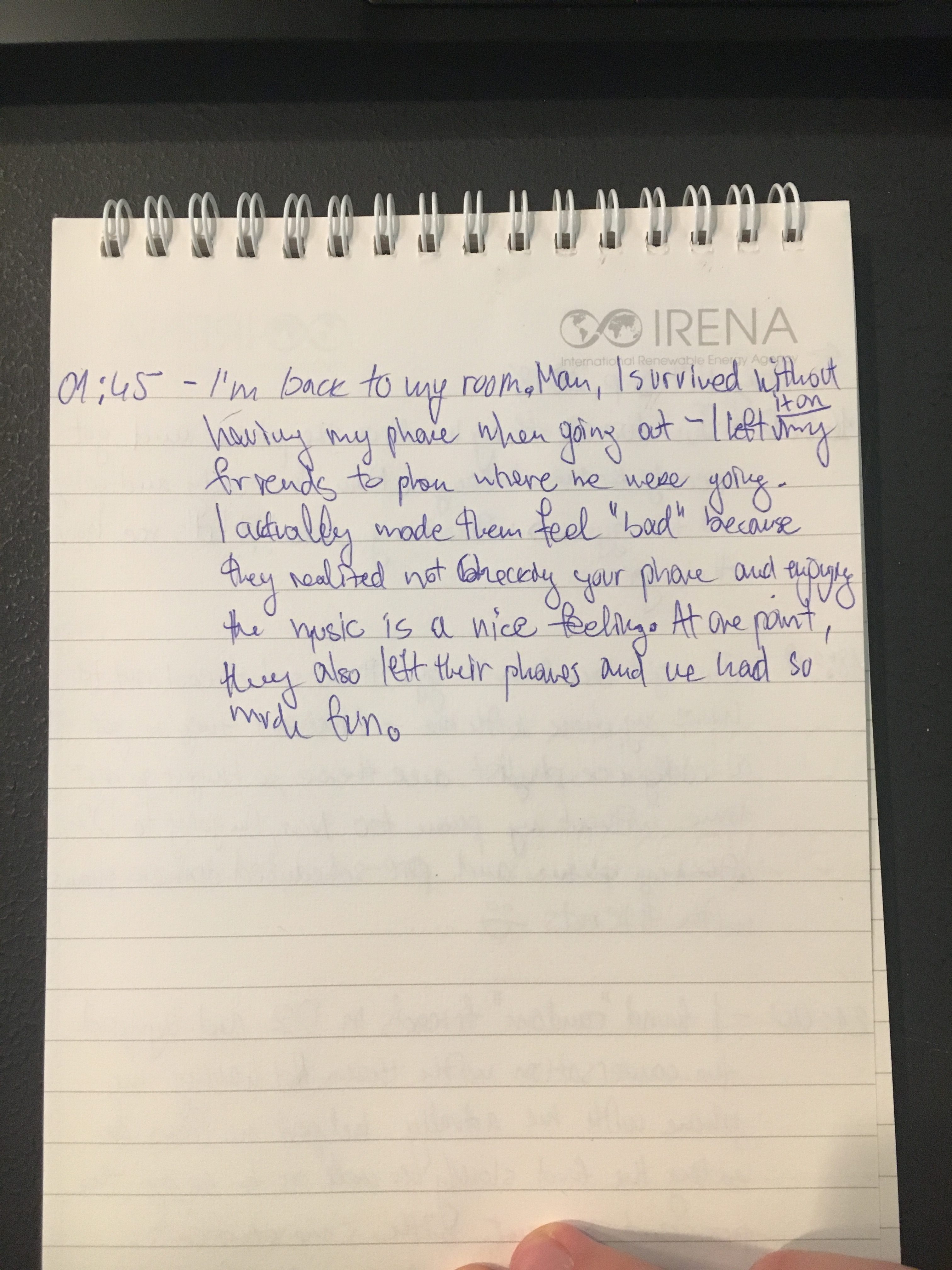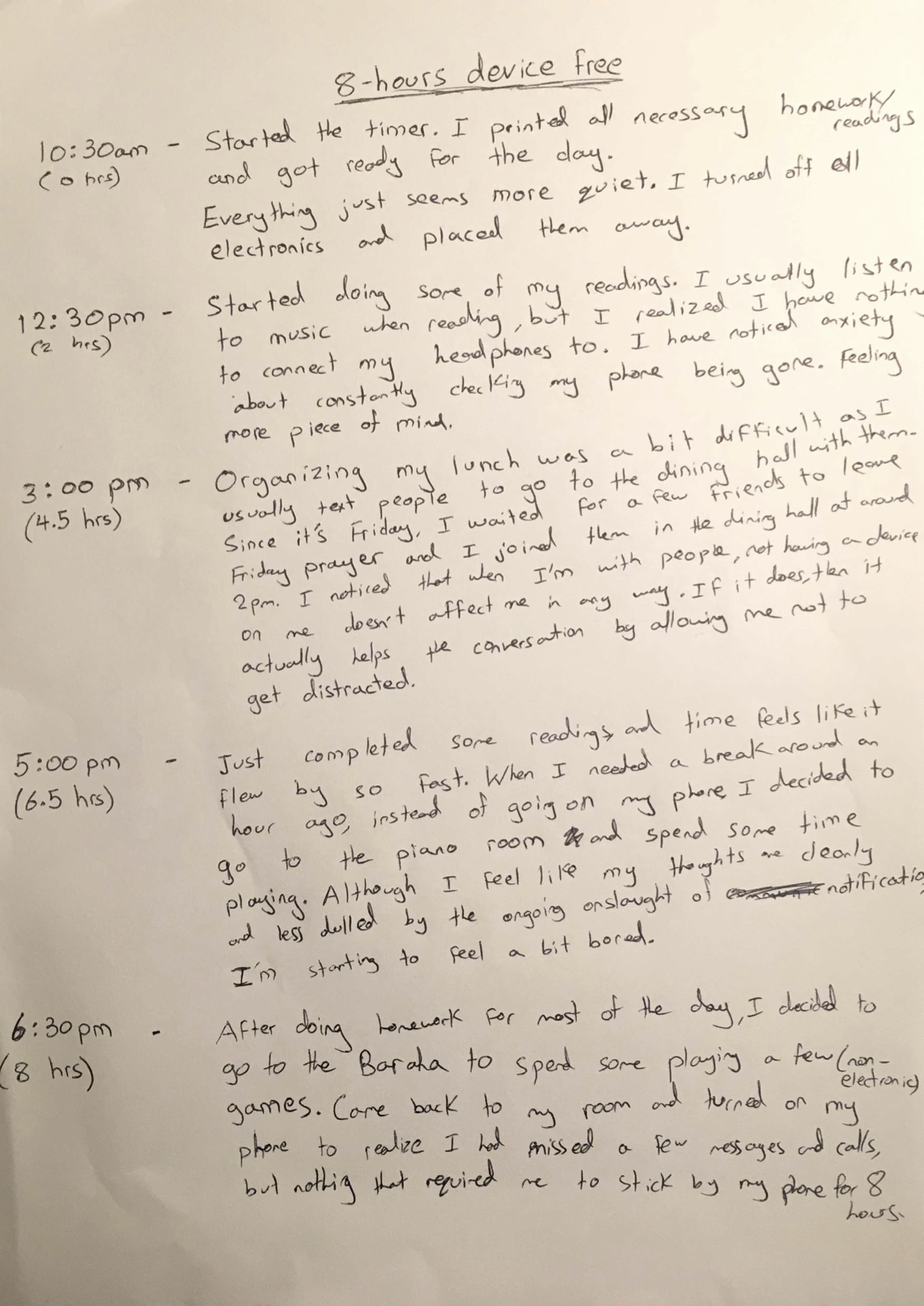After completing the Digital Detox exercise, I was frankly relieved to finally have my phone and feel connected again. In the first few minutes I was ecstatic, checking different apps and messages franticly, and after a few minutes of replying to conversations, checking stories and notification, the excitement came to a halt and I felt kind of empty again – “Ok, I checked everything, I’m all caught up, so now what?” I thought to myself. Of course, I could have started scrolling through endless news feeds and subscriptions, but I didn’t feel compelled to do so. I was happy to finally make arrangements to go out, to see my friends, to talk to my parents, to be able to listen to music as background to my daily actions, as well as to Google (Duck actually) things that I needed to know more about, such as what movies are playing, where to order karak from, how long does it take to get to Al Muneera by taxi, etc.
Thought this exercise, I was surprised that I didn’t have to change many aspects of my daily life – for instance, I didn’t feel uncomfortable that I don’t have my phone around when in the dining hall, or that I would have to sit alone because I didn’t plan to meet anyone. I have to keep in mind however that I had to do many things in preparation for this day- to print my readings, to make to-do lists, and avoid traveling off-campus. On another day, it might have been much more challenging to stay away from technology. What I felt was hurt the most by my digital abstinence were the little conveniences that technology provides me with, such as reminders and timers, quick Duck searches, taking notes on my laptop and having spell-check to proofread my writing.
Sherry Turkle’s recollections of her experience with reclaiming person-to-person communications resonated with me on some level. Even though I consider myself very present in the moment, observant and invested in the immediate world around me, many of the social situations described by Turkle captured my own experience with people around me. For example, the level of “emotional intelligence” or “emotional development” of some of my friends lacks in ability to recognize emotions in people around them, inability (or lack of desire) to empathize, put oneself in another person’s situation and look at the situation from another point of view. This is not meant as a criticism, but just an observation of how easy is it in the present time to be emotionally distanced from people around you and to fall into thinking that you have a worldly perspective just because you have travelled and you have contacts from different nationalities, as opposed to trying to looks on the individual level at the moment and ask yourself “How is this person feeling in response to my actions, and why might that be?”. I certainly try to ask myself this question more often, and sometimes I apply the principle of embracing life’s “boring bits” and resisting temptation to seek comfort in digital entertainment to fill in the time.




